 L I F E CARY WOLFE, Series Editor Life: A Modern InventionAll Thoughts Are Equal: Davide Tarizzo Laruelle and Nonhuman Philosophy John Maoilearca Bioaesthetics: Making Sense of Lifein Science and the ArtsNecromedia Carsten Strathausen Marcel OGorman Creaturely Love: How Desire Makes UsThe Intellective Space:More and Less Than HumanThinking beyond Cognition Dominic Pettman Laurent Dubreuil Matters of Care: Speculative EthicsLaruelle: Against the Digitalin More Than Human Worlds Alexander R. Galloway Maria Puig de la Bellacasa The Universe of Things:Of Sheep, Oranges, and Yeast:On Speculative RealismA Multispecies Impression Steven Shaviro Julian Yates Neocybernetics and NarrativeFuel: A Speculative Dictionary Bruce Clarke Karen Pinkus CindersWhat Would Animals Say Jacques Derrida If We Asked the Right Questions?Hyperobjects: Philosophy and Ecology Vinciane Despret after the End of the WorldManifestly Haraway Timothy Morton Donna J. Haraway Humanesis: Sound and TechnologicalNeofinalismPosthumanism Raymond Ruyer David Cecchetto Inanimation: Theories of Inorganic LifeArtist Animal David Wills Steve Baker Without Offending Humans:A Critique of Animal Rights lisabeth de Fontenay (continued on page 244)
L I F E CARY WOLFE, Series Editor Life: A Modern InventionAll Thoughts Are Equal: Davide Tarizzo Laruelle and Nonhuman Philosophy John Maoilearca Bioaesthetics: Making Sense of Lifein Science and the ArtsNecromedia Carsten Strathausen Marcel OGorman Creaturely Love: How Desire Makes UsThe Intellective Space:More and Less Than HumanThinking beyond Cognition Dominic Pettman Laurent Dubreuil Matters of Care: Speculative EthicsLaruelle: Against the Digitalin More Than Human Worlds Alexander R. Galloway Maria Puig de la Bellacasa The Universe of Things:Of Sheep, Oranges, and Yeast:On Speculative RealismA Multispecies Impression Steven Shaviro Julian Yates Neocybernetics and NarrativeFuel: A Speculative Dictionary Bruce Clarke Karen Pinkus CindersWhat Would Animals Say Jacques Derrida If We Asked the Right Questions?Hyperobjects: Philosophy and Ecology Vinciane Despret after the End of the WorldManifestly Haraway Timothy Morton Donna J. Haraway Humanesis: Sound and TechnologicalNeofinalismPosthumanism Raymond Ruyer David Cecchetto Inanimation: Theories of Inorganic LifeArtist Animal David Wills Steve Baker Without Offending Humans:A Critique of Animal Rights lisabeth de Fontenay (continued on page 244)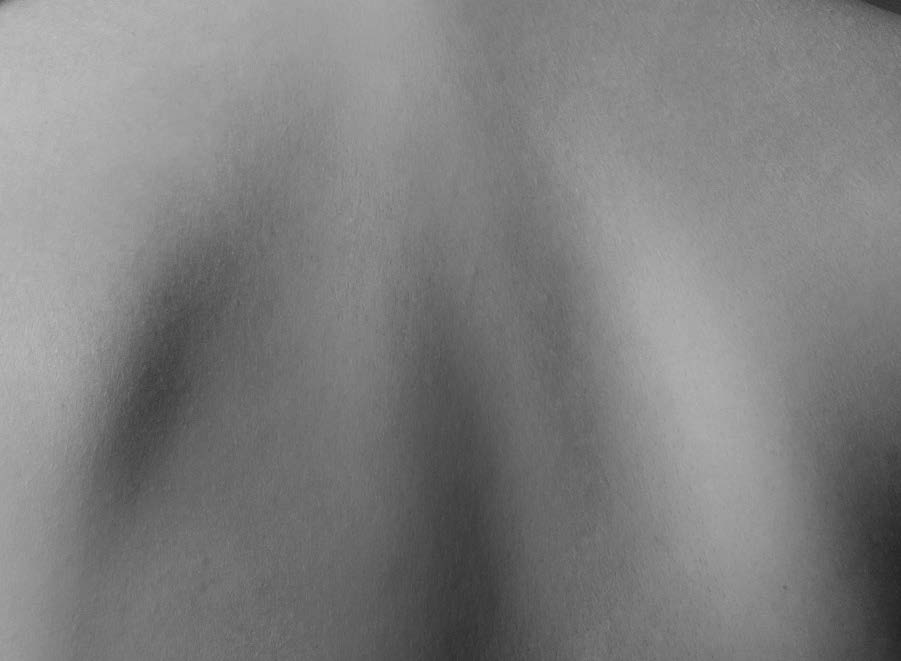 A MODERN INVENTION REVERSE REVERSE DAVIDE TARIZZOTRANSLATED BY MARK WILLIAM EPSTEINposthumanities 44 POS/BOX NEG/BLOCK University of Minnesota Press Minneapolis london The publication of this volume has been supported by a translation grant of the Italian Ministry of Foreign Affairs. Questo volume ha beneficiato di un contributo alla traduzione assegnato dal Ministero degli Affari Esteri italiano. Originally published as La vita, un invenzione recente. Copyright 2010 Gius.
A MODERN INVENTION REVERSE REVERSE DAVIDE TARIZZOTRANSLATED BY MARK WILLIAM EPSTEINposthumanities 44 POS/BOX NEG/BLOCK University of Minnesota Press Minneapolis london The publication of this volume has been supported by a translation grant of the Italian Ministry of Foreign Affairs. Questo volume ha beneficiato di un contributo alla traduzione assegnato dal Ministero degli Affari Esteri italiano. Originally published as La vita, un invenzione recente. Copyright 2010 Gius.
Laterza & Figli; all rights reserved. Published by arrangement with Marco Vigevani Agenzia Letteraria. English translation copyright 2017 by the Regents of the University of Minnesota All rights reserved. No part of this publication may be reproduced, stored in a retrieval system, or transmitted, in any form or by any means, electronic, mechanical, photocopying, recording, or otherwise, without the prior written permission of the publisher. Published by the University of Minnesota Press 111 Third Avenue South, Suite 290 Minneapolis, MN 55401-2520 http://www.upress.umn.edu The University of Minnesota is an equal-opportunity educator and employer. Library of Congress Cataloging-in-Publication Data Names: Tarizzo, Davide, author.
Title: Life : a modern invention / Davide Tarizzo ; translated by Mark William Epstein. Description: Minneapolis : University of Minnesota Press, 2017. | Series: Posthumanities ; 44 | Includes bibliographical references and index. | Identifiers: LCCN 2017009430 (print) | ISBN 978-0-8166-9159-3 (hc) | ISBN 978-0-8166-9162-3 (pb) Subjects: LCSH: Life. Classification: LCC BD431 .T14925 2017 (print) | DDC 113/.8dc23 LC record available at https://lccn.loc.gov/2017009430 ||||It might be well worthwhile to track down the originof the dogma of the sacredness of life. Perhaps, indeedprobably, it is relatively recent, the last mistaken attemptof the weakened Western tradition to seek the saintit has lost in cosmological impenetrability. WALTER BENJAMIN, CRITIQUE OF VIOLENCE, IN REFLECTIONS: ESSAYS, APHORISMS, AUTOBIOGRAPHICAL WRITINGSThis page intentionally left blank CONTENTS This page intentionally left blankWE, THE MODERNS, LIVE. But when did we start living? When did modernity begin? When did we become ourselves? Foucaults most intense and dizzying work, The Order of Things, follows in the path of these questions.
Some of its thesesthose that interest most closely herewere the following. a. Modernity does not begin, as canonical belief would have it, between the sixteenth and seventeenth centuries, with the birth of the new science and the philosophical earthquake provoked by Ren Descartes, but it begins later, at the end of the Classical Age, more or less with Immanuel Kant. This is an idea that Foucault will never abandon and that he clearly restates toward the end of his life, when he claims thatin the light of his ontology of actualitythe rise of modernity and the rise of Enlightenment come to coincide. Foucaults ontology of actuality, or of the pres ent, is indeed an ontology of modernity (Foucault 1984). b.
But what is modern? Human beings are modern, or better, human ity is modern, provided that we regard it as a historico-epistemic threshold taking the form of a riddle: What are human beings? As Foucault explains, humanity didnt exist before modernity, in the sense that human beings didnt tackle the issue of their own humanity, nor had an analytic of finitude yet been developed 2INTRODUCTION in which mans being is always maintained, in relation to man himself, in a remoteness and a distance that constitute him (Foucault 2005, 367). Yet, it is thanks to that remoteness that the profile of man as both the subject and the object of his own reflection arises. It is thanks to that remoteness that man appears as an identity separated from itself by a distance, which, in one sense, is interior to it but, in another, constitutes it (370). All this delimits the horizon of modernity, or of the present, whose criti-cal threshold is marked, according to Foucault, by Kants philoso phy (Fimiani 1997). It is with Kant that critical man, the man who questions the Self (the Same) of his intimate and critical human ity, sees the light of day. It is with Kant that the anthropological Fold surfaces, a Fold by virtue of which human beings will have to first discover, and later adopt for themselves, the law that will finally make them human (Foucault 2005, 372).
Ever since Kant, this is what we mean by the autonomy of modern individuals. The ontology of modernity is the ontology of autonomy. c. On the threshold of autonomy, which imposes the ever-to-be accomplished unveiling of the Same (370) or of the human Self, three epistemic historical a priori emerge: life, labor, and language. These reorder the entire field of human knowledge: biology, eco nomics, and the sciences of language are born. The presence of biology, a natural science, is quite striking in a work that, from beginning to end, attempts to reconstruct the archaeology and the categorial framework of the human sciences.
It is all the more striking when one thinks that ten years later Foucault will see bio powers and biopolitics as the key to modern power. During the 1970s, Foucault will in fact argue that in the Modern Age a new form of power spreads, one that is detached from the law of the sword, from the classical code of sovereignty, in order to take charge of life as such. Its motto is no longer Take life or let live but Make live and let die (Foucault 1978). Power, that is, now targets life itself, a life to be cultivated, empowered, directed, and regulated. That said, what are the conditions of possibility of this modern apparatus of power? One, the most important, had been identi fied by Foucault ten years earlier. It is precisely the emergence of INTRODUCTION3 life, together with labor and language, as an epistemic historical a priori. Foucault makes the point very clear: before modernity, life did not exist, just as a science of life itself, biology, did not exist.
Next page

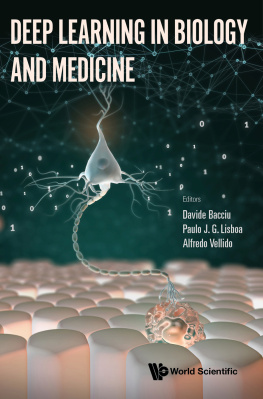
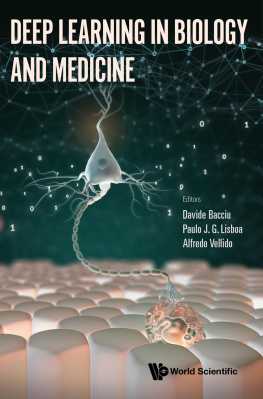
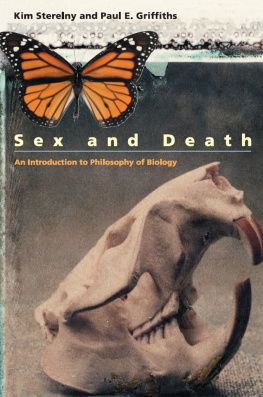
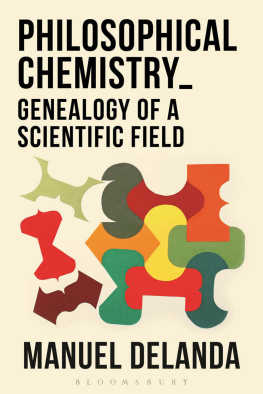
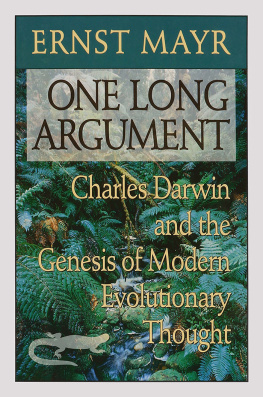
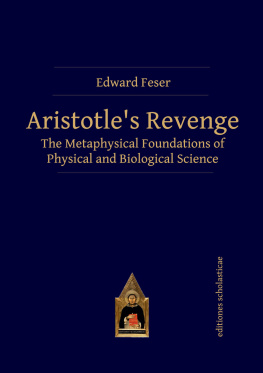
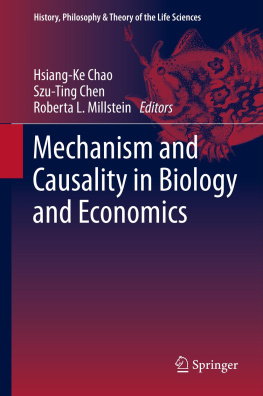
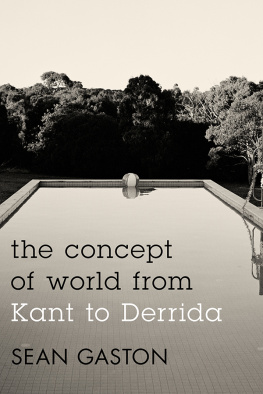
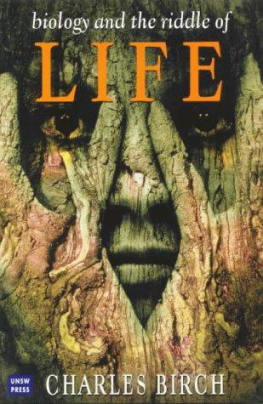
 L I F E CARY WOLFE, Series Editor Life: A Modern InventionAll Thoughts Are Equal: Davide Tarizzo Laruelle and Nonhuman Philosophy John Maoilearca Bioaesthetics: Making Sense of Lifein Science and the ArtsNecromedia Carsten Strathausen Marcel OGorman Creaturely Love: How Desire Makes UsThe Intellective Space:More and Less Than HumanThinking beyond Cognition Dominic Pettman Laurent Dubreuil Matters of Care: Speculative EthicsLaruelle: Against the Digitalin More Than Human Worlds Alexander R. Galloway Maria Puig de la Bellacasa The Universe of Things:Of Sheep, Oranges, and Yeast:On Speculative RealismA Multispecies Impression Steven Shaviro Julian Yates Neocybernetics and NarrativeFuel: A Speculative Dictionary Bruce Clarke Karen Pinkus CindersWhat Would Animals Say Jacques Derrida If We Asked the Right Questions?Hyperobjects: Philosophy and Ecology Vinciane Despret after the End of the WorldManifestly Haraway Timothy Morton Donna J. Haraway Humanesis: Sound and TechnologicalNeofinalismPosthumanism Raymond Ruyer David Cecchetto Inanimation: Theories of Inorganic LifeArtist Animal David Wills Steve Baker Without Offending Humans:A Critique of Animal Rights lisabeth de Fontenay (continued on page 244)
L I F E CARY WOLFE, Series Editor Life: A Modern InventionAll Thoughts Are Equal: Davide Tarizzo Laruelle and Nonhuman Philosophy John Maoilearca Bioaesthetics: Making Sense of Lifein Science and the ArtsNecromedia Carsten Strathausen Marcel OGorman Creaturely Love: How Desire Makes UsThe Intellective Space:More and Less Than HumanThinking beyond Cognition Dominic Pettman Laurent Dubreuil Matters of Care: Speculative EthicsLaruelle: Against the Digitalin More Than Human Worlds Alexander R. Galloway Maria Puig de la Bellacasa The Universe of Things:Of Sheep, Oranges, and Yeast:On Speculative RealismA Multispecies Impression Steven Shaviro Julian Yates Neocybernetics and NarrativeFuel: A Speculative Dictionary Bruce Clarke Karen Pinkus CindersWhat Would Animals Say Jacques Derrida If We Asked the Right Questions?Hyperobjects: Philosophy and Ecology Vinciane Despret after the End of the WorldManifestly Haraway Timothy Morton Donna J. Haraway Humanesis: Sound and TechnologicalNeofinalismPosthumanism Raymond Ruyer David Cecchetto Inanimation: Theories of Inorganic LifeArtist Animal David Wills Steve Baker Without Offending Humans:A Critique of Animal Rights lisabeth de Fontenay (continued on page 244) A MODERN INVENTION REVERSE REVERSE DAVIDE TARIZZOTRANSLATED BY MARK WILLIAM EPSTEINposthumanities 44 POS/BOX NEG/BLOCK University of Minnesota Press Minneapolis london The publication of this volume has been supported by a translation grant of the Italian Ministry of Foreign Affairs. Questo volume ha beneficiato di un contributo alla traduzione assegnato dal Ministero degli Affari Esteri italiano. Originally published as La vita, un invenzione recente. Copyright 2010 Gius.
A MODERN INVENTION REVERSE REVERSE DAVIDE TARIZZOTRANSLATED BY MARK WILLIAM EPSTEINposthumanities 44 POS/BOX NEG/BLOCK University of Minnesota Press Minneapolis london The publication of this volume has been supported by a translation grant of the Italian Ministry of Foreign Affairs. Questo volume ha beneficiato di un contributo alla traduzione assegnato dal Ministero degli Affari Esteri italiano. Originally published as La vita, un invenzione recente. Copyright 2010 Gius.